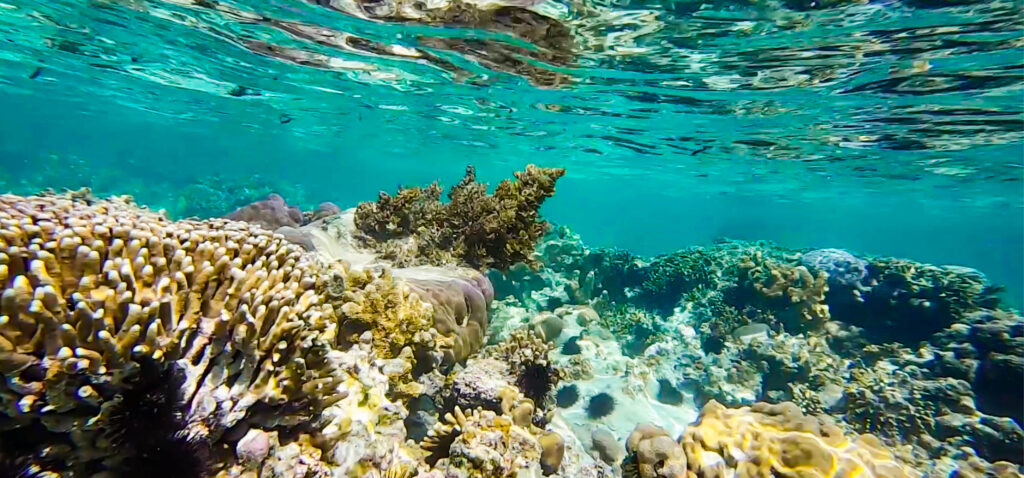Join SIT on a fully funded Fulbright-Hays faculty summer program in Tanzania
Tuko Pamoja: Tanzanian Creativity and Perspectives in an Era of Climate Change

Tuko Pamoja: Tanzanian Creativity and Perspectives in an Era of Climate Change is an experiential summer 2025 workshop for college and high school educators. It is offered by School for International Training with support from a Fulbright-Hays Group Project Abroad (GPA) grant from the U.S. Department of Education.
Starting in June 2025, SIT will welcome six college and six high school educators to Tanzania-Zanzibar. The goal of the workshop is to provide ways for educators to infuse African perspectives into U.S. classrooms and curricula when discussing climate change.
Tanzania-Zanzibar serves as a microcosm of the African continent, which makes it an ideal place to explore the creative and innovative ways urban and rural communities are responding to environmental changes.
Program Dates
The program is five weeks in duration, with arrival in Tanzania on June 28 and departure to the U.S. on August 1, 2025.
Eligibility
The program is open to high school educators and undergraduate faculty who have a demonstrated interest in African studies, climate change, and experiential learning. Twelve eligible applicants will be selected for participation.
Apply HERE by the deadline of January 15, 2025!
Questions?
Please reach out to our Academic Programs Assistant, Anna Morrison at [email protected].
PROGRAM OVERVIEW
Participants in this five-week seminar will benefit from SIT’s focus on experiential learning and our decolonizing approach to teaching and learning. They will gain practical and conceptual tools and develop creative artifacts that can support them in infusing African perspectives and creative responses to climate change into their curriculum and pedagogy back home.
Twelve U.S. educators will be selected to meet with policymakers and community leaders across Tanzania-Zanzibar and learn from:
- Tanzanians engaged in sustainable urban development;
- Smallholder farmers and the Maasai community engaged in innovative “climate-smart” farming practices;
- Artists and craftspeople whose materials and practices are influenced by climate change;
- Activists who focus on coastal and marine environments, sustainable tourism, and natural resource management.
U.S. educators selected for this summer program will gain deep insights from a variety of creative responses to climate change as they reflect on the connections to their teaching practice. The participants will be able to reflect on the life histories and artifacts encountered in the field and will be supported in creating materials and designing lessons to enhance their teaching practice.
LEARNING OUTCOMES
Upon successful completion of the program, participants will be able to:
- Design an action plan for teaching with related artifacts that focuses on concrete and measurable ways to integrate environmental studies and area studies within their curriculum through a decolonial lens.
- Integrate Tanzania-specific case studies, locally sourced and co-created artifacts, and expertise from a network of professionals, educators, and local community members into their U.S.-based teaching practice.
- Delineate the social and cultural impacts of climate change on human relationships with wildlife, domesticated animals, plants, material goods, water, and the arts, particularly in an African context.
- Explain present climate change challenges and innovative mitigations using Tanzania-Zanzibar as a microcosm of the African continent.
SCHEDULE
Click here for 2025 itinerary and view program overview below.
Days 1-10: Stone Town, Zanzibar Archipelago (Unguja Island)
- Examine climate factors, trends, and impacts on coastal areas and coral reefs
- Snorkel at Chumbe Coral Park
- Meet with faculty at the Institute of Marine Science
- Visit two secondary school and community conservations
- Introductory Swahili language training
- Meet with artists and craftspeople to produce creative artifacts tied to the location theme
Days 11-14: Chake Chake, Zanzibar Archipelago (Pemba Island)
- Examine climate factors, trends, and impacts to forests, biodiversity, and community livelihoods
- Visit to Ngezi-Vumbawimbi Nature Forest Reserve
- Meet with Pemba NGOs
- Plant mangrove propagules
- Engage farmer field school and agricultural innovation
- Community celebration
Days 15-20: Dar es Salaam (mainland coastal Tanzania)
- Examine climate factors, trends, and impacts to urban areas
- Introduction to the city
- Explore alternative energy approaches, with emphasis on hydropower and Solar
- Meet with local inventors/entrepreneurs and faculty at University of Dar es Salaam to produce conservation or sustainability artifacts tied to the location theme
Days 21-28: Moshi, Tanzania (Interior Northern Mainland)
- Examine climate factors, trends, and impacts to mountains
- Visit Mweka Wildlife College to discuss glaciers, irrigations strategies, and human-wildlife tensions
- Option to hike on lower slopes of Mount Kilimanjaro
- Meet with secondary school teachers and community members to produce education artifacts tied to location theme
Days 29-35: Arusha, Tanzania and Outlying Areas (Interior Northern Mainland)
- Visit Ngorongoro Crater
- Examine climate impacts and community innovations in parks management
- Address human-wildlife interface and human displacement
- Explore ecotourism in an era of climate change
- Meet with NGOs and Maasai community to produce artifacts tied to social justice
- Farewell Celebration
*Schedule is subject to change
GRANT FUNDING
The following costs will be covered for selected participants:
- Round trip international travel between the U.S. and Tanzania
- Travel costs within Tanzania for project activities
- Lodging and meals during project activities
- Funds to purchase project-related artifacts, resources, and teaching materials in Tanzania
Insurance, visa, passport, and vaccination fees are not covered by the grant and must be paid for by participants. SIT will provide guidance to selected participants regarding applying for a Tanzanian visa and registering for health insurance which meets program requirements. The estimated cost for these components is $200-250 total.
This project has been developed by SIT under a grant from the Fulbright-Hays Group Projects Abroad (GPA) of the U.S. Department of Education. These contents do not necessarily represent the policy of the Department of Education and should not be assumed as an endorsement by the federal government. For more information on the Fulbright-Hays Group Projects Abroad, please visit the U.S. Department of Education’s website at https://www2.ed.gov/programs/iegpsgpa/index.html.


